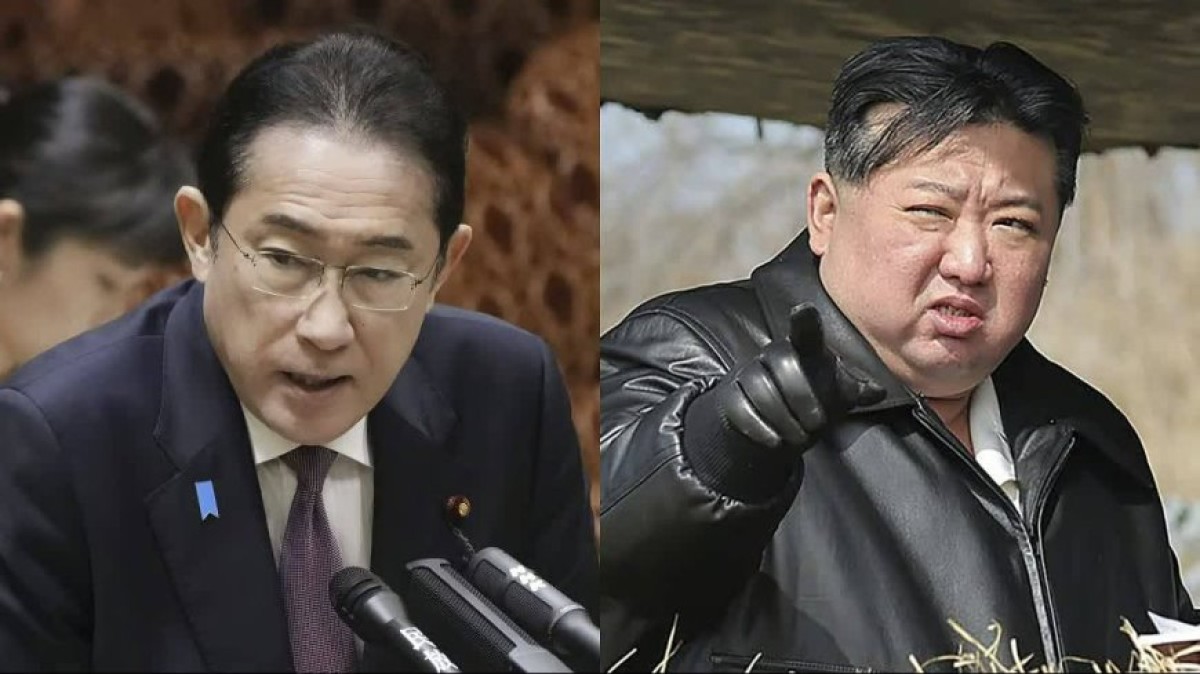 1394
1394
Bridging Divides in East Asia: North Korea and Japan's Quest for Reconciliation
Bridging Divides in East Asia: North Korea and Japan's Quest for Reconciliation
As a nation armed with nuclear capabilities, North Korea occupies a pivotal role in the intricate geopolitical dynamics of East Asia. The countries within this region keenly acknowledge the significance of Pyongyang's paramount military position and consistently endeavor to avert the escalation of tensions.
By: A. Mahdavi
The recent political overtures from North Korea have sparked a nuanced game of diplomacy. Notably, Kim Jong Un's sister disclosed the communist leader's eagerness to engage in dialogue with Japan's Prime Minister, hinting at Tokyo's openness to such discussions. Subsequently, Japan reciprocated the sentiment, positing that a potential meeting with Jong Un could herald a new chapter in bilateral relations.
The crux of contention between Japan and North Korea stems from the historical issue of Japanese citizens held captive in North Korea, totaling 17 individuals. Following then-Prime Minister Koizumi's visit to Pyongyang in 2002, five hostages were repatriated. However, North Korea contends that eight of the remaining 12 captives perished, with four never setting foot in the country. This unresolved matter continues to serve as a focal point of strain and discourse between the two nations. Despite this, Japan has taken strides to prime public opinion for potential negotiations. Notably, last month, relatives of the abductees tentatively consented to the prospect of Tokyo lifting sanctions against Pyongyang, providing the Japanese government with an opening to advance discussions with its nuclear-armed counterpart.
Prime Minister Fumio Kishida’s emphasis on "precondition-free negotiations" and the imperative for a "bold step" to ameliorate relations pose a significant hurdle in convening a dialogue with Kim Jong-un and reaching a viable resolution on the abduction issue. The impasse between the two nations lingers.
Moreover, North Korea contends that Japan must undertake substantial political recalibrations and exhibit a shift in its strategies to demonstrate Tokyo's earnestness in negotiations. The North Korean leadership asserts that Japan ought to manifest concrete and meaningful actions indicative of its commitment to fostering improved ties. Failure to do so, from North Korea's perspective, signifies Prime Minister Kishida's bid to bolster his popularity. The forthcoming meeting between the leaders of the two countries holds substantial significance for Kishida, a fact not lost on Pyongyang, which aims to avoid elevating the prime minister's stature without commensurate concessions.
Beyond this bilateral quagmire, North Korea harbors aspirations to bolster interactions and collaborations between Japan, South Korea, and the United States. In light of the intricate web of alliances in the global arena and the burgeoning cooperation among American allies, North Korea seeks to thwart the consolidation of trilateral relations among Japan, South Korea, and the United States through a gamut of strategic tools at its disposal. It is incumbent upon North Korea to grasp the imperative of these maneuvers amidst the evolving international landscape, as Japan veers away from the tenets of its fundamental civil laws and endeavors to fortify its military capabilities.
Hence, North Korea endeavors to de-escalate tensions with its neighbors, recognizing the exorbitant costs and ramifications of engaging in protracted rivalries with all bordering nations. Moreover, Pyongyang remains acutely attuned to the global shifts following the Ukraine conflict, understanding the imperative of military deterrence and its sustenance. Consequently, the North Korean leader aims to assuage Japan's apprehensions to direct more focused scrutiny towards South Korea and its actions. The geopolitical chess match unfolding between North Korea and its regional counterparts and adversaries necessitates a meticulous and astute play, predicated on the capabilities and maneuvers of each party. Any misstep by a stakeholder has the potential to instigate a large-scale tactical or strategic confrontation. Observers must keenly monitor the unfolding dynamics to discern which player adeptly leverages their resources and acumen to emerge victorious in this intricate and multi-faceted geopolitical gambit.
In the intricate dance of East Asian geopolitics, the quest for reconciliation between North Korea and Japan stands as a pivotal chapter. As tensions ebb and flow, the delicate balance of historical grievances, strategic calculations, and diplomatic maneuvers underscores the need for nuanced diplomacy and bold steps towards bridging divides in the region. The unfolding dynamics between these key players serve as a compelling saga of high-stakes negotiations and strategic posturing, where each move carries the weight of geopolitical consequence. In this evolving landscape, the path to reconciliation remains fraught with challenges and opportunities, beckoning both nations to navigate the complexities with foresight and diplomacy to pave the way for a more harmonious future in East Asia.
 1394
1394
Comment
Post a comment for this article